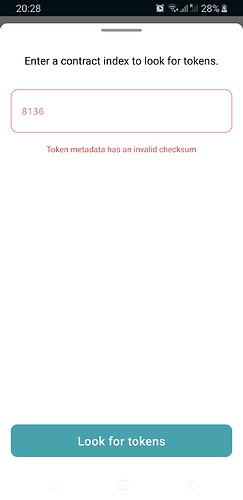I have succesfully minted an Semi fungible token to a wallet but when I try to import the contract index on the same wallet that minted the token it shows that No valid tokens found in contract.
I am making use of the semi fungible smart contract https://github.com/Concordium/concordium-rust-smart-contracts/tree/main/examples/cis2-multi.
This is the txn hash f20ab169061a41c1483a0d92f8a06ed13022124731485bf13ac1582ce655cf5c
and this is the contract_mint function
fn mint(
&mut self,
token_id: &ContractTokenId,
metadata_url: &MetadataUrl,
owner: &Address,
amount: ContractTokenAmount,
state_builder: &mut StateBuilder,
) -> MetadataUrl {
let token_metadata = self.tokens.get(token_id).map(|x| x.to_owned());
if token_metadata.is_none() {
self.tokens.insert(*token_id, metadata_url.to_owned());
}
let mut owner_state =
self.state.entry(*owner).or_insert_with(|| AddressState::empty(state_builder));
let mut owner_balance = owner_state.balances.entry(*token_id).or_insert(0.into());
*owner_balance += amount;
if let Some(token_metadata) = token_metadata {
token_metadata
} else {
metadata_url.clone()
}
}

